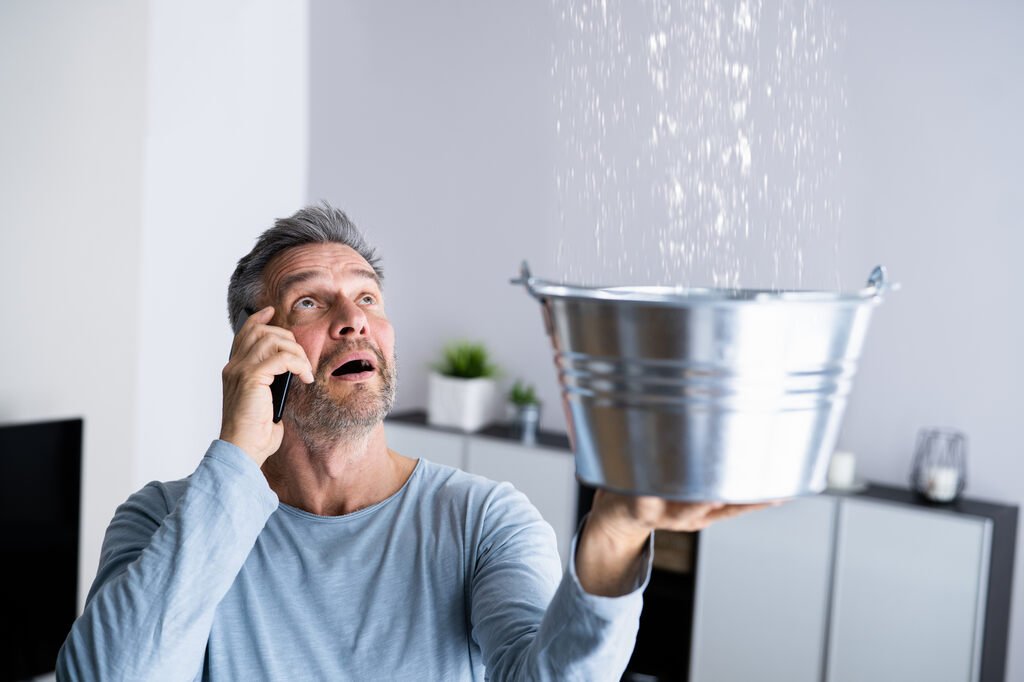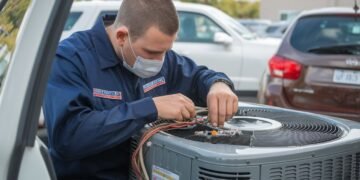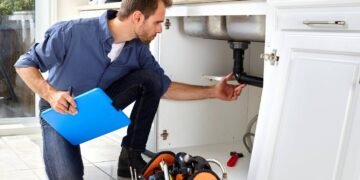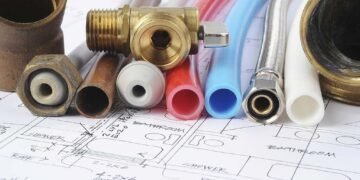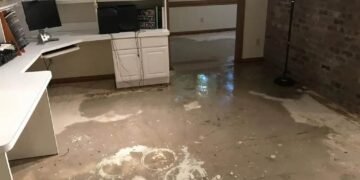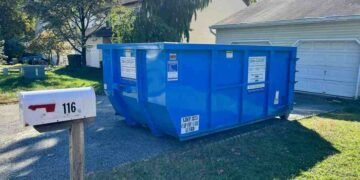Ever found yourself helpless when it comes to dealing with plumbing problems at home? Or maybe you’re the hands-on type, itching to fix plumbing issues yourself right away but don’t have the knowledge to do so? Plumbing emergencies can strike when you least expect them and cause a serious headache if you don’t have the savvy to save the day.
From pesky faucet drips and stubborn clogs to rooms doing a good impression of a swimming pool, these issues can be a real nuisance and damage your property if they’re recurring. That’s why knowing how to handle these emergencies is critical.
This post delves into the usual suspects when it comes to plumbing nightmares and will give you tips on whether you need to pick up the phone and call a plumber.
What Are The Common Plumbing Emergencies?
Facing these common plumbing emergencies can be stressful, but acting swiftly can nip further damage in the bud and avoid creating a potentially hazardous situation. Here’s a quick rundown of the usual plumbing woes and some quick-fix solutions to minimize the damage:
1. Burst Pipes
Burst pipes are the bane of many a homeowner, especially when the temperature drops. As pipes freeze, the water inside swells up, leading to a pipe rupture. Pipes made of polyvinyl chloride or vinyl (PVC) are especially prone to this, as those are rusty, corroded ones.
When this strikes, you’ve got to get a handle on the situation before professional help can swoop in. Here’s what you can do to avoid flooding:
- Locate the burst pipe and flag the affected area.
- Crank up all the cold taps to drain the water from the affected pipe.
- Switch off your central heating system to prevent further damage.
Once you’re sure you’ve stopped the damage from escalating, ring up a professional plumber pronto to fix the pipe.
2. Clogged Drains
Clogged drains can turn your sinks, showers, or toilets into mini pools as water starts backing up with nowhere to go. They’ll also cause a stink and slow down the drainage. Here’s a quick how-to on unclogging a drain:
- If you suspect a blockage like a stubborn chunk of soap or hair, whip out a plunger.
- Pour boiling water down the drain a few times to dissolve the blockage. Mixing boiling water with dish soap might give you better results. Just remember to steer clear of caustic substances or mixing bleach with other substances because the fumes can be toxic.
- A drain snake doesn’t cost much and is easy to use. Give it a shot if the plunger and hot water aren’t doing the trick.
If all else fails, it’s time to dial emergency plumbing service providers near you!
3. Leaky Faucets
Leaky faucets are a real pain, not to mention a waste of water and a hefty water bill. They’re usually due to worn-out washers or seals. Here’s your guide on fixing a leaky faucet:
- Switch off the water supply.
- Pop off the faucet handle and replace the washer or seal.
- Put the faucet handle back and turn the water supply back on.
With a bit of elbow grease, you can save water and dodge unnecessary bills, keeping your home running smoothly and efficiently.
4. Running Toilets
A running toilet is a water waster and a surefire way to bump up your bill. They’re often due to a pesky flapper valve or fill valve. You can easily get replacement kits from a hardware store. Here’s how to fix it:
- Lift the top of the tank and inspect the flapper valve and fill valve.
- Tweak or replace the flapper valve or fill valve as needed.
- Check if the float’s working properly.
- Put the toilet tank back together and check for leaks.
Toilets can leak from other places too, like the base, leaky pipes, or cracked tanks. These may need parts replaced and are probably best left to the pros.
Handling these common plumbing nightmares can save you time, money, and a whole lot of hassle. But remember, an ounce of prevention is worth a pound of cure.
When To Dial A Professional for Plumbing Emergencies?
Plumbing troubles usually start small and don’t spiral into full-blown emergencies unless you turn a blind eye to the warning signs. However, there are times when it’s best to ring up an emergency plumbing service.
Here are some scenarios where you should get professionals on the case right away:
- Major water leaks
- Gas leaks
- Sewer line hiccups
- Drainage problems
- Water heater woes
- No water or a significant drop in water output
- Suddenly spotting water spots or dripping water on the ceilings or walls beneath the bathroom.
Why to Get Professional Plumber?
Sometimes, it might seem like a piece of cake, and you might be tempted to try your hand at fixing the plumbing troubles yourself. However, getting a professional to tackle certain plumbing issues comes with its perks. Here’s why:
- Safety
Certain issues, like gas leaks or major water leaks near electrical outlets or fixtures, can be risky and need the expertise of a licensed pro to handle the issue safely.
- Expertise
Professional plumbers have the right training, experience, and certifications. A botched job can lead to serious damage that could have been avoided.
- Equipment
Professional plumbers come equipped with specialized tools, like drain snakes and leak detection gadgets, to diagnose and fix plumbing problems you might run into. Buying materials for a one-off job or renting the right equipment can cost you a pretty penny.
- Warranty
When you hire a pro plumber, you often get a warranty or guarantee for the work done. While it’s not a magic shield against any future issues, it’s reassuring to know that if the same problem rears its ugly head, you can get the help you need right away.
A plumber’s skill set isn’t just limited to dealing with water lines, drainage, sewage, plumbing fixtures, or water-using appliances like dishwashers, washing machines, or filter systems. They’re also qualified to handle hazardous situations that might occur in your home, like gas leaks.
How to Prevent Plumbing Issues?
While it’s crucial to know how to tackle plumbing emergencies, it’s even more important to stop them from happening in the first place. Here are a few pointers that can help prevent plumbing nightmares:
- Regular Maintenance
Scheduling regular maintenance with a professional plumber is the best way to avoid a crisis. They can swap out worn parts before the damage escalates and morphs into bigger problems.
- Proper Use
Only flush toilet paper—even ‘biodegradable’ plastic can clog. Rather than pouring grease or oil down your drains, use a grease trap. These can cause clogs and backups in your plumbing system once they solidify.
- Insulation
Insulating your pipes is critical in colder climates to keep them from freezing and bursting. Wrap your pipes with heating tape or insulating tape. Insulation can also protect against condensation and steam. If these crack, leaks can appear on the floor or wall where the pipes are hidden.
- Water Pressure
If you’re using a water pump, high water pressure can gradually damage your plumbing system. Think about installing a pressure regulator to keep your water pressure at a safe level.
- Emergency Shut-Off Valve
Get familiar with where your emergency shut-off valve is and how to turn it off. This often-overlooked info can help you quickly cut off your water supply in a plumbing emergency.
Repairing the plumbing system can get ugly, especially when the pipes are tucked away in the wall or floor. Nipping repairs in the bud can save you money and a load of stress.
Final Thoughts
Plumbing emergencies can be stressful and will drain your wallet, but by knowing how to tackle common problems and when to ring up a pro, you can prevent further damage. You’ll also keep your plumbing system in top shape and save yourself time and money in the long run.
Recommended Posts:

